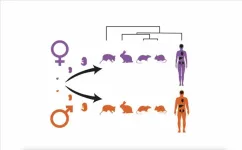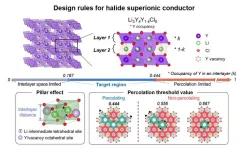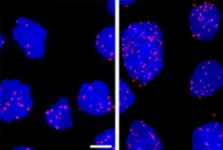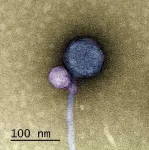(Press-News.org) Americans who have a tooth pulled or another painful dental procedure in the United States today are far less likely to get opioid painkillers than they were just a few years ago, a new study shows.
That’s good news, since research shows that opioids are not necessary for most dental procedures.
But the COVID-19 pandemic seems to have thrown a wrench into the effort to reduce opioid use in dental care – and not just in the few months after dentists and oral surgeons started providing routine care again after a pause in spring 2020.
The decline in opioid prescriptions filled by dental patients was much faster in the pre-pandemic years 2016 through 2019, compared with the rate of decline from June 2020 to December 2022, the study shows.
In all, dental opioids dispensed to U.S. patients of all ages declined 45% from 2016 to the end of 2022, according to the new findings published in PLoS One by a team from the University of Michigan Medical School and School of Dentistry.
But even with the decline, 7.4 million dental patients of all ages filled opioid prescriptions in 2022.
Fortunately, opioid prescriptions to teens and young adults – who face especially high risks related to opioids – kept declining at a rapid rate after the pandemic pause in dental care, the study finds. But for other groups, the rate of decline slowed after June 2020.
In all, the researchers estimate, 6.1 million more dental opioid prescriptions were dispensed between June 2020 and December 2022 than would have been if pre-pandemic trends had continued.
And American dentists and oral surgeons were still prescribing opioids in late 2022 at four times the rate that another study showed British dentists were in 2016.
“These data suggest the dental profession has made major strides in reducing opioid prescribing, but also suggest that progress is slowing,” said Kao-Ping Chua, M.D., Ph.D., the senior author of the new study and an assistant professor of pediatrics at U-M. He worked with first author and former U-M research assistant Jason Zhang, who is now in medical school at Northwestern University.
“We know from research that dental pain in most patients can be controlled with non-opioid medications, avoiding the risks of opioids,” said co-author Romesh Nalliah, D.D.S., M.H.C.M., professor and associate dean for clinical affairs at the U-M School of Dentistry. “While it’s reassuring that dental opioid prescribing is declining, the recent slowing in the decline suggests the dental profession must redouble its efforts to reduce unnecessary opioid prescribing.”
The researchers couldn’t determine the procedure that led to each opioid prescription, nor could they determine the exact reason for the slowing of the decline in dental opioid prescribing during the pandemic. However, there are some likely culprits.
“One reason for the slowing might be that dentists were more likely to prescribe opioids just in case they were necessary, out of concerns that patients couldn’t easily follow up with their dentist during the pandemic,” said Zhang.
Right-sizing prescribing
Chua, Nalliah and their colleagues have studied dental opioid prescribing multiple times, and worked with the Michigan Opioid Prescribing Engagement Network (OPEN) to develop prescribing guidelines for dental and oral surgery care available at michigan-open.org/dentistry.
Reducing the number of opioids dispensed to dental patients, especially young ones, is thought to reduce the risk of opioid misuse and diversion of pills to other people besides the patient.
Poisoning of others in the household, and interactions between opioids and other substances including alcohol and prescription drugs, are other reasons to focus on non-opioid dental pain care.
But no studies have examined dental opioid prescribing trends using pandemic-era data.
Differences by provider type, insurance type and region
The new study is based on data from a company called IQVIA that tracks prescriptions dispensed at 92% of U.S. pharmacies. The researchers excluded data from March through May of 2020, when routine dental care in the U.S. stopped temporarily.
The study revealed pandemic-associated changes in dental opioid prescribing varied widely. For instance, the rate of decline in opioid prescribing by oral and maxillofacial surgeons – who perform more complex procedures on people with advanced dental conditions – slowed during the pandemic to a lesser degree than for general dentists and dental subspecialists.
For low-income patients covered by the Medicaid program, the number of dental opioid prescriptions during June 2020-December 2022 was 57% higher than predicted than if pre-pandemic trends had continued. For privately insured patients, this percentage was 30% higher than predicted.
The authors speculated that worsened access to dental care in Medicaid patients – who have already have poor access to begin with – may have increased the number of painful dental emergencies and the need for opioids.
People living in the Southern U.S. made up nearly 46% of all people with dental opioid prescriptions in 2022, higher than any other region. But the researchers found that the decline in dental opioid prescribing to people in the Northeast slowed to a greater degree than in other regions. This meant that by the end of 2022, dental opioid prescribing was 69% higher in the Northeast than it would have been if declines had continued at pre-pandemic rates, compared with 23.8% in the South.
Additional authors:
In addition to Chua, Zhang and Nalliah, the study’s authors include OPEN co-directors Jennifer Waljee, M.D., M.P.H., M.S. and Chad Brummett, M.D. All except Zhang are members of the U-M Institute for Healthcare Policy and Innovation, and Brummett co-directs the U-M Opioid Research Institute.
Chua is a member of the Susan B. Meister Child Health Evaluation and Research Center in the Department of Pediatrics, which also provided some of the funding for the study.
The study was also funded by the Benter Foundation and the Michigan Department of Health and Human Services.
Association Between the COVID-19 Outbreak and Opioid Prescribing by U.S. Dentists, PLOS ONE, DOI:10.1371/journal.pone.0293621
END
Good news, bad news on dental pain care seen in new study
Patients are taking home far fewer opioid painkillers now than a few years ago, data show, but the pandemic slowed the decline greatly
2023-11-02
ELSE PRESS RELEASES FROM THIS DATE:
Researchers identify female sex determining gene in mice
2023-11-02
Francis Crick Institute press release
Under strict embargo: 18:00hrs GMT Thursday 2 November 2023
Peer reviewed
Experimental study
Animals
Researchers at the Francis Crick Institute and the Université Cote d’Azur, together with other labs in France and Switzerland, have identified a gene which is an early determining factor of ovary development in mice.
Typically, mice with XY sex chromosomes develop testes, and mice with XX chromosomes develop ovaries. Whether early gonads become ovaries or testes is due to cells either ...
How organs of male and female mammals differ
2023-11-02
The development of sex-specific characteristics is frequently seen in mammals. These characteristics stem from the activation of corresponding genetic programmes that until now have been largely undescribed by the scientific community. An international research team from the Center for Molecular Biology of Heidelberg University and The Francis Crick Institute in London has, for the first time, decoded the programmes that control the sex-specific development of major organs in selected mammals – humans, mice, rats, rabbits, and opossums. By comparing these programmes, the researchers were also able to trace the ...
New designs for solid-state electrolytes may soon revolutionize the battery industry
2023-11-02
Researchers led by Professor KANG Kisuk of the Center for Nanoparticle Research within the Institute for Basic Science (IBS), have announced a major breakthrough in the field of next-generation solid-state batteries. It is believed that their new findings will enable the creation of batteries based on a novel chloride-based solid electrolyte that exhibits exceptional ionic conductivity.
A pressing concern with current commercial batteries their reliance on liquid electrolytes, which leads to flammability ...
Black holes are messy eaters
2023-11-02
New observations down to light-year scale of the gas flows around a supermassive black hole have successfully detected dense gas inflows and shown that only a small portion (about 3 percent) of the gas flowing towards the black hole is eaten by the black hole. The remainder is ejected and recycled back into the host galaxy.
Not all of the matter which falls towards a black hole is absorbed, some of it is ejected as outflows. But the ratio of the matter that the black hole “eats,” and the amount “dropped” ...
New strategy attacks treatment-resistant lymphomas
2023-11-02
A surprising mechanism that makes some cancers treatment-resistant has been discovered by Weill Cornell Medicine and NewYork-Presbyterian investigators. The mechanism, which involves the shuttling of messenger RNAs (mRNAs) from the nucleus to the cytoplasm, ultimately facilitates DNA repair in cancer cells. These cancer cells can thereby thwart treatments aimed at damaging their DNA.
In a project encompassing both fundamental research and clinical studies they demonstrated that a combination of approved chemotherapies, ...
At least 14% of Americans have had long COVID
2023-11-02
One in seven people in the US reported having had long Covid by the end of 2022, suggests a large-scale investigation of long Covid and symptom prevalence by academics at UCL and Dartmouth.
Having had long Covid is associated with anxiety and low mood, as well as an increased likelihood of continued physical mobility problems and challenges with memory, concentration or understanding, according to the findings published in PLOS ONE.
The risk of anxiety and low mood appeared to be lower for those who have been vaccinated, ...
Mount Sinai researchers receive $7 million to improve outcomes for high-risk blood cancer patients from the Multiple Myeloma Research Foundation
2023-11-02
New York, NY (November 2nd, 2023) — The Mount Sinai Health System has received a $7 million grant from the Multiple Myeloma Research Foundation for a three-year project that aims to fast-track novel translational concepts to improve outcomes for people with high risk myeloma, the second most common blood cancer in the United States.
This grant award will facilitate a multidisciplinary research project that will analyze a large, diverse cohort of patient samples from all over the United States at the genomic and immune level and apply novel functional genomics technology to understand the critical events that drive ...
Pascal Lee awarded the 2023 Carl Sagan Prize for Science Popularization
2023-11-02
November 2, 2023, Mountain View, CA -- The SETI Institute is delighted to announce that Dr. Pascal Lee will be honored with the 2023 Carl Sagan Prize for Science Popularization presented by Wonderfest. The prestigious Sagan Prize recognizes and encourages individuals who “have contributed wonderfully to the public understanding and appreciation of science.” Previous recipients from the SETI Institute include SETI Institute co-founder and SETI pioneer Jill Tarter, senior astronomer Seth Shostak and trustee Andrew Fraknoi.
“I am truly delighted and humbled by this award,” says Pascal Lee, “all the more because Carl Sagan was, and remains, ...
UMBC team makes first-ever observation of a virus attaching to another virus
2023-11-02
No one had ever seen one virus latching onto another virus, until anomalous sequencing results sent a UMBC team down a rabbit hole leading to a first-of-its-kind discovery.
It’s known that some viruses, called satellites, depend not only on their host organism to complete their life cycle, but also on another virus, known as a “helper,” explains Ivan Erill, professor of biological sciences. The satellite virus needs the helper either to build its capsid, a protective shell that encloses the virus’s genetic material, or to help it replicate ...
Research connecting gut bacteria and oxytocin provides a new mechanism for microbiome-promoted health benefits
2023-11-02
The gut microbiome, a community of trillions of microbes living in the human intestines, has an increasing reputation for affecting not only gut health but also the health of organs distant from the gut. For most microbes in the intestine, the details of how they can affect other organs remain unclear, but for gut resident bacteria L. reuteri the pieces of the puzzle are beginning to fall into place.
“L. reuteri is one of such bacteria that can affect more than one organ in the body,” said co-corresponding author Dr. Sara Di Rienzi, ...
LAST 30 PRESS RELEASES:
ASU researchers to lead AAAS panel on water insecurity in the United States
ASU professor Anne Stone to present at AAAS Conference in Phoenix on ancient origins of modern disease
Proposals for exploring viruses and skin as the next experimental quantum frontiers share US$30,000 science award
ASU researchers showcase scalable tech solutions for older adults living alone with cognitive decline at AAAS 2026
Scientists identify smooth regional trends in fruit fly survival strategies
Antipathy toward snakes? Your parents likely talked you into that at an early age
Sylvester Cancer Tip Sheet for Feb. 2026
Online exposure to medical misinformation concentrated among older adults
Telehealth improves access to genetic services for adult survivors of childhood cancers
Outdated mortality benchmarks risk missing early signs of famine and delay recognizing mass starvation
Newly discovered bacterium converts carbon dioxide into chemicals using electricity
Flipping and reversing mini-proteins could improve disease treatment
Scientists reveal major hidden source of atmospheric nitrogen pollution in fragile lake basin
Biochar emerges as a powerful tool for soil carbon neutrality and climate mitigation
Tiny cell messengers show big promise for safer protein and gene delivery
AMS releases statement regarding the decision to rescind EPA’s 2009 Endangerment Finding
Parents’ alcohol and drug use influences their children’s consumption, research shows
Modular assembly of chiral nitrogen-bridged rings achieved by palladium-catalyzed diastereoselective and enantioselective cascade cyclization reactions
Promoting civic engagement
AMS Science Preview: Hurricane slowdown, school snow days
Deforestation in the Amazon raises the surface temperature by 3 °C during the dry season
Model more accurately maps the impact of frost on corn crops
How did humans develop sharp vision? Lab-grown retinas show likely answer
Sour grapes? Taste, experience of sour foods depends on individual consumer
At AAAS, professor Krystal Tsosie argues the future of science must be Indigenous-led
From the lab to the living room: Decoding Parkinson’s patients movements in the real world
Research advances in porous materials, as highlighted in the 2025 Nobel Prize in Chemistry
Sally C. Morton, executive vice president of ASU Knowledge Enterprise, presents a bold and practical framework for moving research from discovery to real-world impact
Biochemical parameters in patients with diabetic nephropathy versus individuals with diabetes alone, non-diabetic nephropathy, and healthy controls
Muscular strength and mortality in women ages 63 to 99
[Press-News.org] Good news, bad news on dental pain care seen in new studyPatients are taking home far fewer opioid painkillers now than a few years ago, data show, but the pandemic slowed the decline greatly





